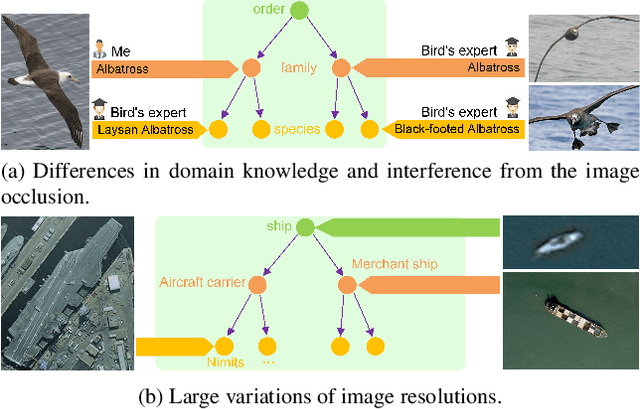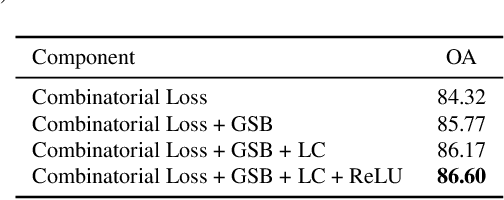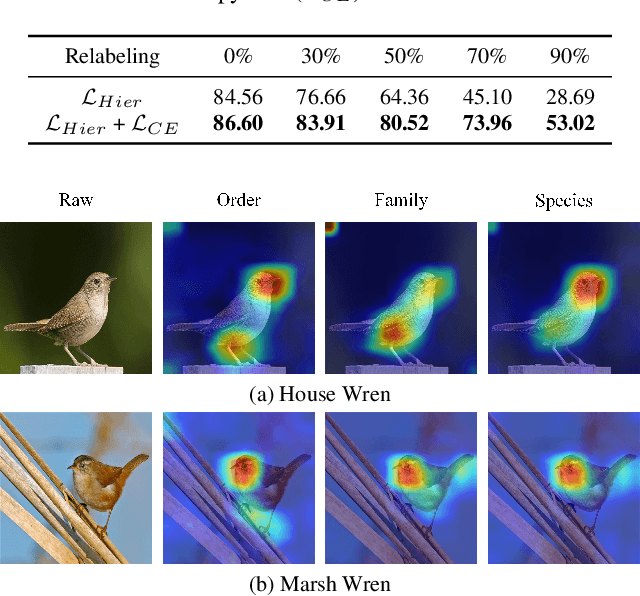Label Relation Graphs Enhanced Hierarchical Residual Network for Hierarchical Multi-Granularity Classification
Paper and Code
Jan 11, 2022



Hierarchical multi-granularity classification (HMC) assigns hierarchical multi-granularity labels to each object and focuses on encoding the label hierarchy, e.g., ["Albatross", "Laysan Albatross"] from coarse-to-fine levels. However, the definition of what is fine-grained is subjective, and the image quality may affect the identification. Thus, samples could be observed at any level of the hierarchy, e.g., ["Albatross"] or ["Albatross", "Laysan Albatross"], and examples discerned at coarse categories are often neglected in the conventional setting of HMC. In this paper, we study the HMC problem in which objects are labeled at any level of the hierarchy. The essential designs of the proposed method are derived from two motivations: (1) learning with objects labeled at various levels should transfer hierarchical knowledge between levels; (2) lower-level classes should inherit attributes related to upper-level superclasses. The proposed combinatorial loss maximizes the marginal probability of the observed ground truth label by aggregating information from related labels defined in the tree hierarchy. If the observed label is at the leaf level, the combinatorial loss further imposes the multi-class cross-entropy loss to increase the weight of fine-grained classification loss. Considering the hierarchical feature interaction, we propose a hierarchical residual network (HRN), in which granularity-specific features from parent levels acting as residual connections are added to features of children levels. Experiments on three commonly used datasets demonstrate the effectiveness of our approach compared to the state-of-the-art HMC approaches and fine-grained visual classification (FGVC) methods exploiting the label hierarchy.
 Add to Chrome
Add to Chrome Add to Firefox
Add to Firefox Add to Edge
Add to Edge